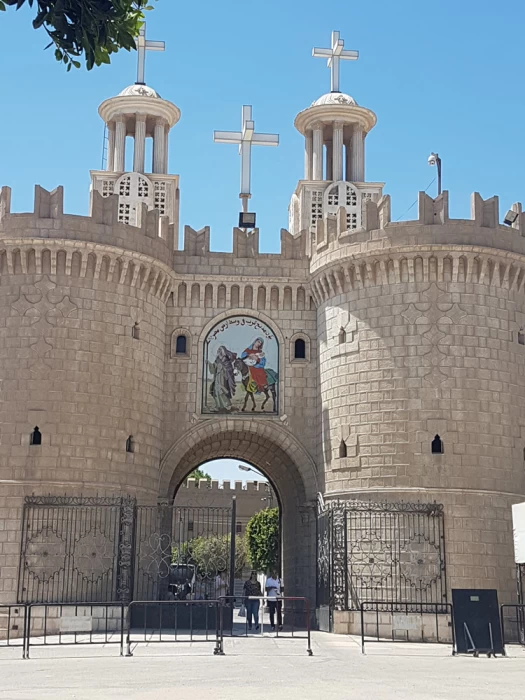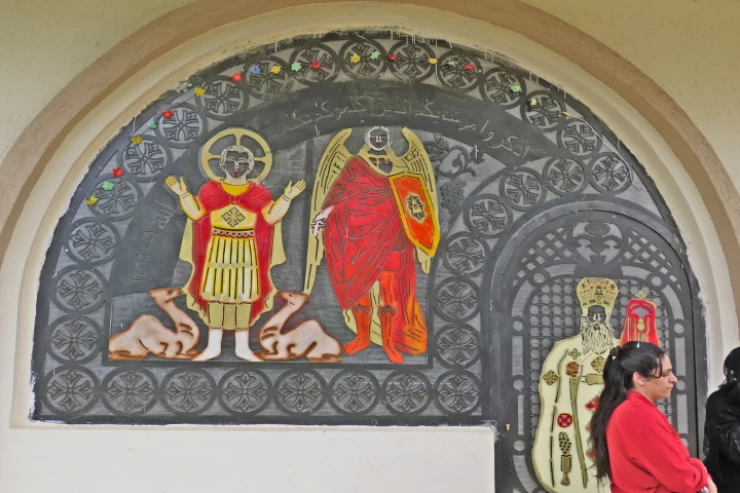
Deir al muharraq / The Monastery of the Holy Virgin Mary
The monastery of Our Lady of Muharraq in Mount qasqam, known briefly as Deir Al-Muharraq, is a Christian monastery affiliated with the Coptic Orthodox Church, 12 kilometers from the city of Al-qusayya in Asyut governorate in Egypt.
Geography
The Deir Al-Muharraq complex is located on the Nile River south of Al-qusayya (Coptic: ⲕⲟⲥⲕⲁⲙ, Arabic: Al-qusayya), in the Asyut governorate of Upper Egypt.
Deir al Muharraq monastery
The monastery is located within the Diocese of the Coptic Orthodox Church of Alexandria, and about 100 monks from the canonical or community monastic order reside in it.
The stone fortress on Mount qusaqam in Deir Al-Muharraq was built in the VI or VII century. The Castle Church has a pulpit dating back to the XII century, dating back to when the castle was first restored.
The monastery library consists of two entities, the library of ancient Coptic manuscripts and archives, and the library of contemporary research and reading.
Churches
The monastery complex includes three churches:
The ancient Church of the Virgin Mary of the XII century (with additions of domes in the XVI-XIX centuries)،
St. George's Church in the neoclassical style of the XIX century (1878-1880)،
The last Church of the Holy Virgin Mary in the middle of the twentieth century (1940-1964).
The Assumption Church of the monastery was built over an ancient grotto. It is said that Mary and Jesus spent six months and ten days here during their journey to Egypt from King Herod. The altar stone dates back to 747 AD.
The monastery served as a host for Ethiopian monks in the XVII century.
Many Copts have great respect for this church, believing that it is one of the first Christian churches in ancient Egypt. It was associated with a Marian apparition event claimed in the early first decade of the XXI century.















